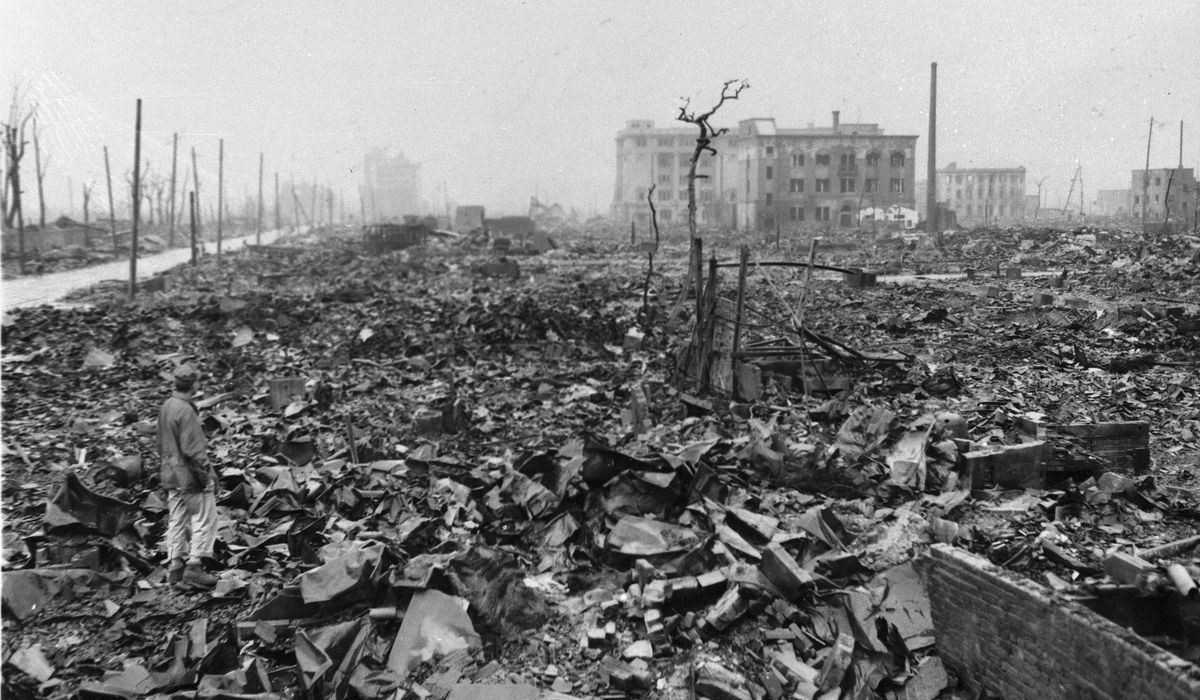


SEOUL, South Korea — President Trump’s atomic bomb comments at the NATO leaders summit this week caused ripples in Japan, even as they capped an astonishing period of U.S. peacemaking, not just in the Middle East, but also in Indo-Pakistan and in Africa.
A fragile ceasefire between Iran and Israel appears to be holding, and Islamabad has nominated the U.S. president for the Nobel Peace prize. The capital cited his role in ending a three-day Indo-Pakistan aerial conflict between the nuclear-armed states in May.
Even greater events are afoot. In Africa, the U.S. has quietly been mediating an end to mankind’s bloodiest war since World War II — a three-decade series of wars, the death toll of which dwarves that of ongoing Middle Eastern hostilities.
Rwandan and Congolese leaders are slated to convene in Washington on Friday for the signing of a historic peace agreement between the two nations brokered by the U.S. and Qatar, potentially ending the world’s deadliest conflict since WWII. Some 6 million people are estimated to have died in the Second Congo War.
The walk-up to the deal, however, has been largely overlooked as the global commentariat focused on the Middle East, which was also in sharp focus at the NATO Summit in the Netherlands, which ended Thursday.
Mr. Trump, who considers himself a peacemaker, frequently raises eyebrows with unscripted comments, and in the Hague, he did not disappoint.
The U.S. president compared his recent use of huge “bunker buster” bombs against Iran’s nuclear sites to the atomic bombs that shocked Tokyo into surrendering in 1945, ending World War II.
“That hit ended the war,” Mr. Trump said of the June 22 B2 stealth bomber mission he ordered. “I don’t want to use an example of Hiroshima. I don’t want to use an example of Nagasaki. But that was essentially the same thing. That ended that war.”
Major questions hang over how effective the U.S. strike on Iran was.
Undeniably, the atomic bombs dropped by the U.S. on the two cities in 1945 remain an acutely sensitive subject in Japan.
Japan’s leading news agency Kyodo, wrote: “Justifying the world’s first use of nuclear weapons on a civilian population, provoked an angry outcry from survivors of the bombings of the Japanese cities by U.S. forces in 1945.”
The newspaper quoted Teruko Yokyama, a member of the Nihon Hidankyo, the atomic bomb survivors’ group that won the 2024 Nobel Peace Prize.
“I’m really disappointed,” the 83-year-old was quoted as saying. “All I have is anger.”
Even so, the atomic controversy has been drowned out in Japanese media by wider reports about the fragile Iran-Israel ceasefire announced by the U.S. president, which is holding in defiance of dire expectations.
Mr. Trump’s apparent Middle Eastern triumph was preceded by a surprise announcement on June 21 that Pakistan was nominating him for the Nobel Peace Prize.
Islamabad cited his “decisive diplomatic intervention and pivotal leadership during the recent India-Pakistan crisis.”
Indo-Pakistan aerial conflict flared up suddenly on May 7, and ended equally suddenly after an urgent U.S. diplomatic intervention on May 10.
• Andrew Salmon can be reached at asalmon@washingtontimes.com.
